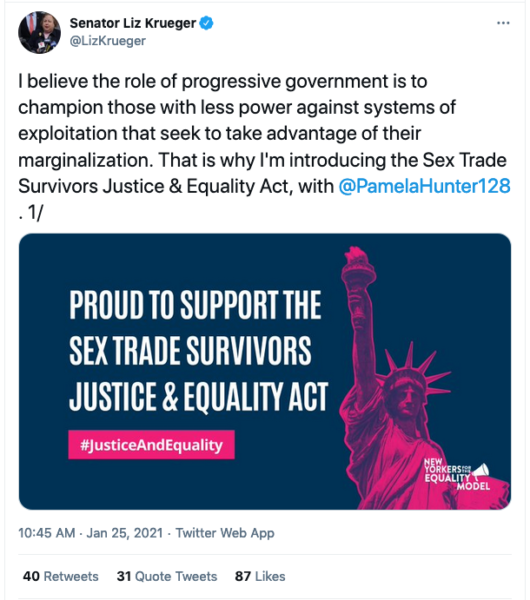GiGi Thomas, longtime advocate for human rights for all people and specifically trans people and sex workers, needs our help. GiGi may have the opportunity soon for the judge to reconsider and reduce her sentence. When the judge sentenced GiGi she was influenced by the outpouring of letters in support of GiGi, so we want to show our support for GiGi again. While unfortunately we do not have an exact timeline, we are gathering letters now which we will present to the judge when the time is right.
Please send a scanned PDF of your letter with you signature to freegigi22 @ gmail.com.
If you don’t want to write a letter yourself, let us know and we can share the sign-on letter we are composing, which you could join.
Here are some tips for writing a letter:
[Note: If you know GiGi personally, please include such details as how long you’ve known her, any positive details about her and her contributions in the community, and anything you know about her struggles, trauma, and strength.]
- Dear Judge Cotton
- Mention that you’re writing about GiGi Marie Thomas, whose sentence is up for reconsideration.
- Identify yourself and your role(s)/involvement in the community (e.g. profession, volunteer work, LGBTQ community member, how long you’ve lived in area, etc.)
- Mention that you heard about GiGi’s case from the her community of supporters.
- Optional talking points **please make your remarks as specific and unique from your perspective as possible**
- Information on how you know trauma-informed mental health care care is important or about the great need for competent professionals to serve trans women of color, prevent violence, and help keep trans women safe.
- Details about GiGi professionally.
- Request that the judge to consider the incredible positive impact GiGi has had in the community.
- Describe how her work relates to your experiences.
- Request that the judge reduce GiGi’s sentence and support the provision of trauma-informed care.
“I’m advocating behind bars for transgender rights, keeping myself grounded in spirituality, and lifting up the spirits of others behind bars by giving them peer counseling, or even just a word of advice. I’m getting involved in programs to keep myself motivated.”
-GiGi Thomas
GiGi Thomas is a Black transgender woman who has worked for more than 15 years supporting people in need in the D.C.-Baltimore area. She served as a client consultant with the sex-worker rights and human services organization HIPS and completed a Masters in Social Work from Howard University. Over the years, GiGi helped thousands of community members find shelter and sustenance, reunited families, cared for the injured, and spoke out about injustice especially regarding the treatment of the trans community. Gigi’s peers describe her as “one of those people who just gives and gives with all they have,” and an “amazing woman” with “a heart of gold.
Since 2015, GiGi has been incarcerated and in 2017 she was sentenced to many years in prison, but the judge was moved by the number of letters she received in support of GiGi and said that GiGi should ask for a reconsideration to shorten her sentence at some point in the future. GiGi has now made the request and we are gathering letters in support of shortening her sentence. Like so many people in prison, GiGi is herself a survivor of violence and discrimination.
Read about a snapshot of GiGi’s work here: https://www.metroweekly.com/2007/01/community-growth/.
Other ways to support GiGi
You can also write to GiGi as she loves receiving letters, although she is not always able to respond. The requirements and prohibitions for mail are located here: https://news.maryland.gov/dpscs/inmate-mail-services/.
GiGi Marie Thomas, 456712-1562143
Roxbury Correctional Institute – Hagerstown (RCI)
18701 Roxbury Rd.
Hagerstown, MD 21746
You can also deposit money in GiGi’s account, which she can use to buy supplies for letter writing, food, and other necessities. We recommend using the online option as physical money orders sent to the lockbox do not always seems to reach her. More information here: https://news.maryland.gov/dpscs/inmate-trust-fund-services/. On the Access Corrections website, you will need to enter the state (Maryland), agency (Maryland Department of Corrections) and either her first and last name or her SID # which is 1562143.

